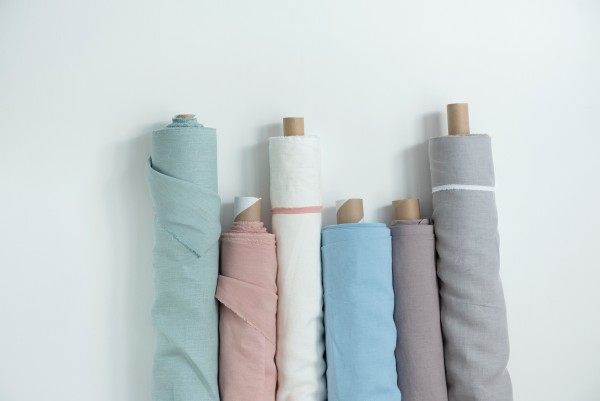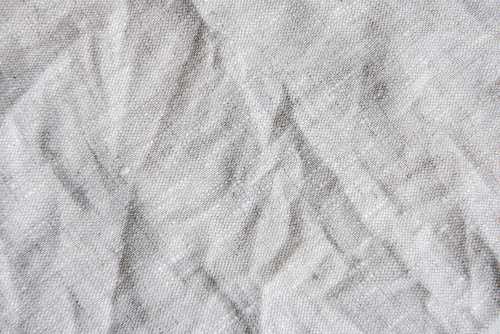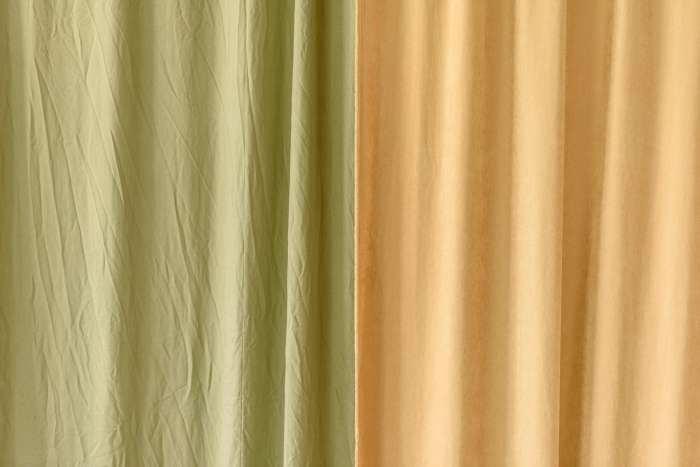There are a few key differences between linen and muslin that you should be aware of before making a purchase. For one, linen is made from flax fibers, while muslin is made from cotton fibers. This means that linen is naturally more absorbent than muslin. Additionally, linen is much more durable than muslin and will last longer with repeated washings. Finally, linen fabric has a bit of a rough texture, while muslin is much softer to the touch. When choosing between linen and muslin, it really comes down to personal preference and what you plan to use the fabric for. If you need a sturdy, long-lasting fabric for things like tablecloths or curtains, linen is the way to go.
Differences Between Muslin and Linen |
|
|---|---|
| Muslin is a plain-woven fabric made from cotton | Linen is made from the fibers of the flax plant. |
| Muslin is a cheaper fabric than linen | Linen is Expensive |
| Muslin and is often used for high-end garments or home decor items | Linen is a stronger fabric |
| Muslin is a more versatile fabric | linen and can be used for a variety of purposes, including clothing, quilting, and crafts. |
| Muslin is less Durable | Linen is a more durable fabric |
An In-Depth Look at Linen and Muslin

Have you ever wondered what the difference is between linen and muslin? If you have, you’re not alone. These two fabrics are often used interchangeably, but they actually have quite a few differences. In this blog post, we’ll take a closer look at linen and muslin so that you can make an informed decision about which fabric is right for your next project.
Linen is a fabric that is made from flax fibers. It’s a durable fabric that is often used in high-end garments like suits and dresses. Linen is also a popular choice for home decor projects like curtains and tablecloths. Muslin, on the other hand, is a cotton fabric. It’s less expensive than linen and it’s often used for pattern making or as a lining material. Muslin is also frequently used in theater productions to create curtains and backdrops.
When it comes to durability, linen is the clear winner. Linen garments can last for years with proper care, whereas muslin garments will usually only last for a season or two. However, muslin has the advantage when it comes to breathability. Muslin is a more porous fabric than linen, which means it’s better suited for hot weather wear. Linen is also more likely to Wrinkle than muslin, which makes it less ideal for travel clothes.
In terms of cost, linen is more expensive than muslin. This is because linen garments are typically made with higher-quality materials and construction techniques. However, muslin garments can be just as well-made as linen garments if you choose to purchase them from a reputable source. When it comes to versatility, both fabrics have their advantages. Linen can be dressed up or down, while muslin can be used for a wide variety of projects like quilting or garment construction.
Ultimately, the decision of whether to use linen or muslin depends on your personal preferences and the needs of your project. If you’re looking for a durable fabric that can be dressed up or down, linen is a good choice. If you’re looking for an inexpensive fabric that’s easy to work with, muslin might be a better option. Whichever fabric you choose, we hope this blog post has helped you understand the differences between these two popular fabrics.
Linen vs Muslin: Which Material is Right for You?
When it comes to finding the perfect fabric for your next sewing project, you have a lot of options. Two of the most popular fabrics are linen and muslin. But what’s the difference between the two? Let’s take a closer look.
Linen is made from flax fiber, which is strong and absorbent. It’s a popular choice for summer clothing because it’s lightweight and breathable. Linen wrinkles easily, so it’s not the best choice for garments that need to look crisp and clean.
Muslin is also made from natural fibers, but it’s usually made from cotton. It’s a versatile fabric that can be used for a variety of projects, including clothing, quilting, and crafts. Muslin is less likely to wrinkle than linen, so it’s a good choice for projects that need to look neat and tidy. Muslin is also cheaper than linen, so it’s a good option if you’re working on a budget.
Verdict
Both linen and muslin are great choices for sewing projects. If you’re looking for a lightweight and breathable fabric, linen is a good option. If you need a fabric that won’t wrinkle easily, muslin is a better choice. And if you’re working on a budget, muslin is the way to go. Whichever fabric you choose, you’re sure to end up with a beautiful finished product!
What Is Muslin Fabric?
Muslin fabric is a type of cotton fabric that is characterized by its light weight and soft, finely woven texture. It is often used in quilting, as well as for making clothing, curtains, and other household items. Muslin fabric is available in a variety of colors and patterns, which makes it a versatile choice for a variety of projects.
What Is Linen Fabric?

Linen is a type of fabric made from the fibers of the flax plant. It is characterized by its strength and durability, as well as its absorbency. Linen fabric is often used in garments that are meant to be worn in hot weather, as it helps to keep the body cool. Additionally, linen fabric has a bit of a natural sheen, which gives it a luxurious look.
How to Choose the Right Fabric ?
When choosing between linen and muslin, it is important to consider what you will be using the fabric for. If you need a sturdy, long-lasting fabric for things like tablecloths or curtains, linen is the way to go. However, if you are looking for a soft, lightweight fabric for clothing or other items that will be in contact with your skin, muslin is the better choice. Whichever type of fabric you choose, make sure to wash it before using it in order to ensure that it is clean and free of any chemicals.
How is Muslin fabric made?
Muslin fabric is made from cotton fibers that are woven together in a tight, plain weave. The resulting fabric is light and airy, with a soft, finely textured surface. Muslin is available in a variety of colors and patterns, which makes it a versatile choice for a variety of projects.
How is linen Fabric made?
Linen is a type of fabric made from the fibers of the flax plant. The flax plant is harvested and the fibers are separated from the stem. The fibers are then spun into yarn, which is used to weave linen fabric. Linen fabric is characterized by its strength and durability, as well as its absorbency. It is often used in garments that are meant to be worn in hot weather, as it helps to keep the body cool. Additionally, linen fabric has a bit of a natural sheen, which gives it a luxurious look.
What are the benefits of Muslin fabric?
Muslin fabric is a versatile choice for a variety of projects due to its light weight and soft, finely woven texture. Additionally, muslin is available in a wide range of colors and patterns, making it easy to find the perfect fabric for your needs. Muslin is also relatively inexpensive, which makes it a great choice for budget-conscious crafters.
What are the Benefits of linen fabric?
Linen is a strong and durable fabric that is also quite absorbent. This makes it an excellent choice for garments that are meant to be worn in hot weather. Additionally, linen fabric has a bit of a natural sheen, which gives it a luxurious look.
What are the Disadvantages of Muslin Fabric?
Muslin fabric is not as strong or durable as some other types of fabric, so it is not ideal for items that will see a lot of wear and tear. Additionally, muslin is not as absorbent as linen, so it is not the best choice for garments that are meant to be worn in hot weather.
What are the Disadvantages of linen Fabric?
Linen is a bit more expensive than muslin, so it may not be the best choice for budget-conscious crafters. Additionally, linen is not as absorbent as some other fabrics, so it is not the best choice for garments that are meant to be worn in hot weather.
Which type of Muslin fabric should I choose?
The type of fabric you choose will depend on what you need it for. If you need a sturdy, long-lasting fabric for things like tablecloths or curtains, linen is the way to go. However, if you are looking for a soft, lightweight fabric for clothing or other items that will be in contact with your skin, muslin is the better choice. Whichever type of fabric you choose, make sure to wash it before using it in order to ensure that it is clean and free of any chemicals.
Exploring the Various Uses of Muslin Fabrics
Muslin fabric is a versatile material with a wide range of uses, from garments to home décor. Often used in dressmaking, muslin fabric is a lightly woven cotton material that is easy to sew and drapes well. It can be found in a variety of colors, though natural muslin fabric is usually white or off-white. In this blog post, we’ll explore some of the many different ways that muslin fabrics can be used.
Garments
Muslin fabric is often used in garments such as dresses, skirts, and blouses. Its light weight makes it comfortable to wear in warm weather, and its ability to breathe makes it a good choice for activewear as well. Muslin fabric can also be easily dyed to create custom colors for your garments.
Home Décor
Muslin fabric is also popular in home décor, especially for window treatments. Curtains made from muslin fabric are lightweight and allow for plenty of light to enter the room. Muslin fabric can also be used to make slipcovers for furniture or tablecloths for special occasions.
Art and Crafts
In addition to its uses in sewing and home décor, muslin fabric is also popular in art and crafts projects. It can be used as a backing material for quilts or embroidery projects, or it can be used to make puppets or dolls. Muslin fabric is also often used as a photography backdrop.
Conclusion:
As you can see, muslin fabrics have many different uses beyond being simply a dressmaking fabric. Whether you’re looking for a light and airy window treatment or a sturdy backing material for a quilt, muslin fabric is sure to fit the bill. So next time you’re at the fabric store, don’t hesitate to pick up a bolt of muslin fabric—you may be surprised at all the different ways you can use it!
